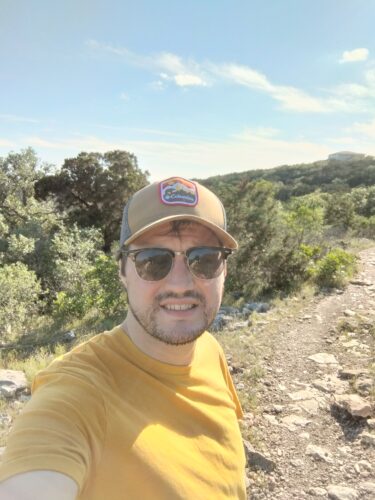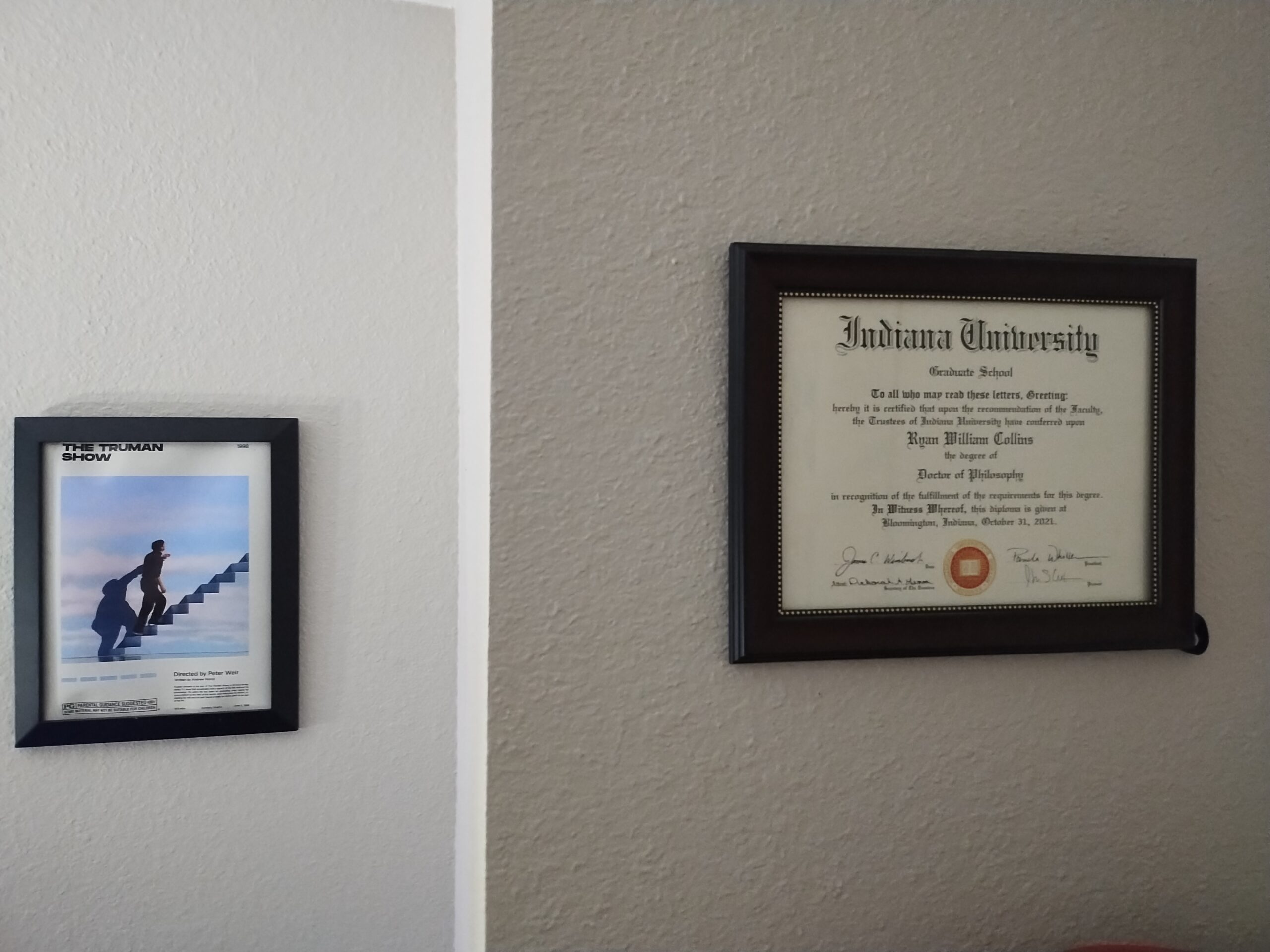Sometimes I feel proud of what I accomplished finishing my PhD.
Earning this degree took days, weeks, and years of my life. I read countless books, completed dozens of courses, taught undergraduates for little or no pay, and wrote a dissertation.
But other times, I think about the student loan debt (yes, unfortunately), the stress, and the former classmates from my undergraduate years who are already in senior roles. In those moments, I don’t feel as proud.
I wonder what might have happened if I’d chosen a different path—maybe a degree in finance or business, more time for my hobbies, and the ability to pay all my bills without worry. In retrospect I thought a PhD was the ultimate goal, but what matters more is the life you want to live after your PhD.
And when I really think about it—yes, I regret my PhD.
How To Take the Next Steps in Your Career (and Life) After Your PhD
If you suddenly come to this realization—like I did—the worst thing you can do is be hard on yourself for the decisions you made.
Millennials, in particular, grew up with the deeply ingrained belief that a college education was not just a path to success, but the path. I believed it so strongly that I didn’t stop at one degree—I pursued several, eventually earning a PhD.
Still, regret doesn’t have to define the rest of your story. It’s possible to reassess, to pivot, and to create something fulfilling from where you are now.
If you’re in a similar place, here are a few tips I’ve found helpful—and I hope they can offer you some direction too.
Dealing with Regret After Your PhD
#1 – Talk to People Outside of Academia
I’m still connected with many people from my academic days—friends from the University of North Texas and Indiana University—but the truth is, friends come and go. The same goes for professors you may have worked closely with. Sometimes, you push yourself to finish a PhD just to prove you can—to them, to yourself. But at the end of the day, they have their lives, and we have ours.
One of the most valuable things you can do after leaving academia is to reach out and expand your perspective. Talk to people from different walks of life. Connect with professionals on LinkedIn. Start conversations at social gatherings. Set up informational interviews with people working in industries or roles that interest you. If you’re feeling stuck or overwhelmed, speaking with a therapist can also help you process your experience and move forward with clarity.
Staying in the same academic or social bubble will only limit your options and reinforce a narrow view of what’s possible. If you’re considering a pivot—or even just exploring what’s next—you need to widen your network.
#2 – Determine Why You Chose To Pursue An Advanced Degree
Understanding what initially motivated you—whether it was curiosity, a passion for research, a desire to teach, the need for stability, or external validation—can offer insight into what still matters to you now. These answers can help you identify values, skills, and interests that remain relevant, even if the setting or career changes.
Unless your experience in academia was deeply traumatic, it’s important to remember: you’re still you after earning a PhD. Your core strengths—discipline, critical thinking, persistence—are still there. The key is learning how to redirect them toward something new that aligns with who you are today
For example, I initially wanted to become a film studies professor because I loved storytelling, writing, research, and teaching. I genuinely enjoyed spending time in quiet, structured library spaces where it felt like I could learn anything I wanted. That environment felt safe, focused, and intellectually fulfilling.

But sometimes, to grow, you have to leave that calm and familiar place for somewhere new—something less predictable but potentially more exciting. And that shift starts with asking questions: What do I still love about my work? What am I missing? What kind of life do I want now?
Now, I work in marketing and SEO as an SEO Strategist, and interestingly, many of the elements I loved about academia are still very much a part of my day-to-day. I get to educate clients about SEO, dive into keyword and content research, and translate complex data into clear, compelling narratives that clients can actually understand—it’s storytelling, just in a different form.
If you’re in the process of figuring out your next step, do your best to write your thoughts down. Reflect on what you’ve enjoyed, what you’ve learned, and where you felt most engaged. These insights are incredibly valuable—not just for your own clarity, but also when you’re speaking with others. Bring them into informational interviews or career conversations. Use them to connect the dots between where you’ve been and where you want to go next.
#3 – Set Small Goals, Ask Questions, and Be Open to New Experiences
Part of doing a PhD is setting a lofty, ambitious goal. It can feel like climbing a massive mountain—one that takes years of effort, sacrifice, and determination. And when you finally reach the top, instead of celebration, you may feel exhausted. Then comes the realization: there’s still a long way down, and no clear path forward.
Don’t repeat that cycle. Instead of setting another massive goal right away, try creating smaller, more manageable steps that can lead you toward clarity and fulfillment. These steps don’t have to be grand—they just have to keep you moving.
Here are a few examples:
- Meet 5–10 new people in different industries or roles
- Conduct 2–3 informational interviews about careers you’re curious about
- Learn 1 new skill that feels exciting or useful
- Start or build a simple portfolio that showcases your abilities
- Revisit a hobby or subject you’ve put aside
- Make a list of 2–3 jobs that genuinely interest you
This process isn’t just about action—it’s about asking better questions and staying open to unexpected opportunities. Sometimes the job or path that suits you best isn’t one you originally considered.
For instance, I was once completely set on becoming a data scientist. I thought it made sense given the research background and demand in the job market. But through conversations and exploration, I realized my core skills didn’t align with the role in a fulfilling way. Eventually, I discovered SEO—an area where research, writing, analysis, and storytelling all came together. It wasn’t an accident. It happened because I asked questions.
#4 -Find Something Fulfilling Outside Work
Find a hobby. Revisit something you loved as a child, or try something completely new. It doesn’t have to be productive or impressive—it just has to be yours. Whether it’s painting, hiking, gaming, playing an instrument, or learning a craft, giving your mind and body something to engage with outside of work is essential.
Constantly thinking about your career path, next steps, or whether you made the “right” choices can become emotionally exhausting. You need space to just be—to reconnect with joy, creativity, and curiosity outside the professional sphere.
In many ways, hobbies help you reset. And sometimes, in that space of doing something just for yourself, the clarity you were searching for finally starts to show up.

Now you might ask, “Is there a specific goal with a hobby?”
Not necessarily. And that’s the beauty of it.
The purpose of a hobby isn’t to achieve something—it’s simply to enjoy the process, to relax, to discover, or to create without the pressure of outcomes. Hobbies give you a chance to be fully present in the moment, without worrying about what comes next. They offer a break from the grind of career-focused thinking, and in that space, you might just find a new perspective or spark of inspiration.
Support After Your PhD on Patreon!
If you find my experiences and content like this valuable, please consider supporting my work on Patreon!

Ryan Collins PhD is an SEO Strategist at Go Fish Digital. Ryan completed his PhD in Media Arts and Sciences at Indiana University Bloomington in 2021. During his time at Indiana University, Ryan eventually pivoted into a career in SEO and Digital Marketing after having informational interviews with working professionals in SEO, working on side projects, and gaining industry experience.
